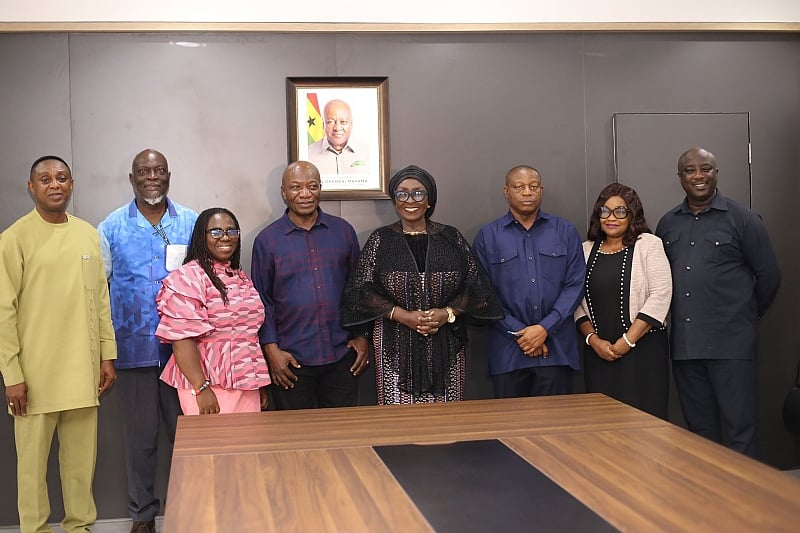The inauguration of a dedicated team by Ghana’s Ministry of Tourism, Culture and Creative Arts marks a crucial step towards reclaiming the nation’s plundered cultural heritage. This initiative, spearheaded by the sector minister, Madam Abla Dzifa Gomashie, transcends the mere retrieval of artifacts; it signifies a profound reconnection with Ghana’s historical identity and a reaffirmation of national pride. The minister emphasized the importance of this undertaking for future generations, urging the youth to embrace their heritage as an essential foundation for progress. The return of these cultural treasures is not simply about possessing objects; it is about mending the fractured link between Ghana’s past, present, and future, fostering a deeper understanding of the nation’s narrative and its place in the world. This repatriation effort is intrinsically linked to restoring cultural dignity and acknowledging the deep-seated wounds inflicted by colonial-era exploitation, particularly the loss of sacred objects that hold immense spiritual and cultural significance for the Ghanaian people.
The focal team, composed of experts drawn from diverse fields, has been entrusted with the complex task of identifying, documenting, and negotiating the return of these stolen artifacts. Their mandate extends to both sacred and historical items, reflecting the holistic approach Ghana has adopted in addressing this multifaceted issue. The team’s work is not solely confined to identifying and cataloging these items, but also involves meticulous research into their provenance and significance, often requiring painstaking detective work across international borders and institutions. This diligent documentation is crucial not only for establishing Ghana’s legitimate claim to the artifacts but also for understanding their historical and cultural context, allowing for their proper reintegration into the nation’s cultural fabric upon their return. Negotiations with holding institutions, often sensitive and protracted, will require diplomatic finesse and a firm commitment to securing the rightful return of these objects.
The government’s efforts are bolstered by a robust legal framework and international collaborations. Ghana’s adoption of international conventions against the illicit trafficking of cultural property, as commended by UNESCO representative Mr. Carl Ampah, significantly strengthens the nation’s legal standing in its pursuit of restitution. These international legal frameworks provide a basis for Ghana’s claims and demonstrate the global recognition of the importance of preserving cultural heritage and combating its illegal trade. Further, the backing of regional and international bodies like ECOWAS, the African Union, and UNESCO situates Ghana’s endeavor within a broader pan-African movement seeking justice for the widespread loss of cultural heritage during the colonial era. This collaborative approach highlights the shared experience of African nations and amplifies the collective voice demanding the return of stolen cultural treasures.
Professor Kojo Gavua, a leading archaeologist from the University of Ghana, underscored the extensive groundwork laid by the team, highlighting their engagement through regional workshops and public awareness campaigns. These initiatives, held in various locations including Cape Coast, Bolgatanga, Ho, and a major international workshop in Accra, demonstrate the team’s commitment to fostering broad-based participation and raising public awareness about the significance of cultural heritage repatriation. These efforts are not merely about recovering artifacts; they also aim to educate the public about the impact of cultural loss and the importance of reclaiming these objects for future generations. By engaging with local communities and fostering national dialogue, the team seeks to create a sense of shared ownership and responsibility for the preservation of Ghana’s cultural heritage.
Tangible progress is already evident, with some institutions taking proactive steps towards repatriation. The Durban Museum in South Africa has signaled its intention to return two Asante artifacts – a traditional stool and a shrine figure – while the Fowler Museum in the United States has already repatriated a gold item and expressed willingness to return more. These actions demonstrate a growing international recognition of the ethical imperative to return cultural property to its rightful owners. The willingness of institutions like the Durban and Fowler museums to engage in the repatriation process signals a positive shift in the global discourse around cultural heritage. The return of these artifacts, even in small numbers, represents a significant symbolic victory for Ghana and reinforces the importance of continued dialogue and collaboration with international institutions.
Furthermore, the National Museum of the Netherlands has submitted a catalog of items of Ghanaian origin for consideration, opening up avenues for further dialogue and potential repatriation. Ghana’s active participation in a German committee dedicated to revising policies on cultural returns, especially concerning looted artifacts from Kpando, further underscores the nation’s commitment to engaging in constructive dialogue and pursuing all available avenues for the return of its cultural heritage. These developments highlight the growing momentum of the repatriation movement and the increasing willingness of institutions to engage with the issue. Ghana’s proactive approach, through both direct negotiations and participation in international committees, demonstrates a long-term commitment to reclaiming its cultural heritage and ensuring its preservation for future generations. The composition of the team, which includes experts from academia, the Ministry of Foreign Affairs, the Attorney General’s Department, UNESCO, the Ministry of Tourism, and the Ministry of Local Government, Decentralization and Rural Development, reflects the multidisciplinary approach required for this complex endeavor.


